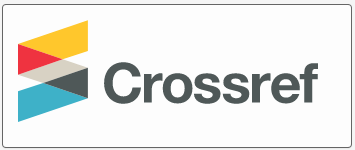Comparative Analysis of the Rights of Students with Disabilities on the Examples of Georgia and Some European Countries
DOI:
https://doi.org/10.52340/idw.2023.110Keywords:
Inclusive education, Higher education, Persons with special educational needs, DisabilitiesAbstract
In this article we discuss the rights of students with disabilities in Georgia and European countries, legislative changes and international political documents. Today the rights of persons with disabilities are one of the areas on which attention is focused in almost all developed countries and the protection of their rights is one of the important, priority and noteworthy issues. All modern researchers rely on international norms and recognize their influence in the issues of education of people with disabilities. All political documents talk about the equal rights of disabled people and their protection. The disadvantages of inclusive education in higher education institutions are caused by the absence of such problems as, first of all, the difficulty of developing educational programs adapted for students with disabilities, on the other hand, with the insufficient material and technical base and also with a low level of training of professors and teachers. There are many problems that appear in terms of implementation of inclusive education in higher education institutions, but there are also recommendations for their elimination.
Downloads
References
ბერგრენი: U.J.Berggrenn,D.Rowan,E.Bergback,B.Blomberg, 2016, Disabled students experiences of higher education in Sweden, the Czech Republic and the United States-a comparative institutional analysis, Disability and society- vol13, #3, 339-356
კალინიკოვა-მაგნუსონი: Magnusson-Kalinnikova.L., 2019, obtaining inclusion in higher education instrumentally: Swedish university experience, 1º Congreso Internacional de Ciencias Humanas - Humanidades entre pasado y futuro. Escuela de Humanidades, Universidad Nacional de San Martín, Gral. San Martín
ლოუ: Low.J., Negotiating identities, negotiating environments: an interpretation of the experiences of students with disabilities, Disability & Society, Vol. 11, No. 2, 1996, pp. 235±248
მორინია: Morina.A.,Inclusive education in higher education: challenges and opportunities, European journal of special needs education, 2016, Inclusive education in higher education: challenges and opportunities: European Journal of Special Needs Education: Vol 32, No 1 (tandfonline.com)
მოსუელა: Moswela.M.E., 2011, Asking too much? The voices of students with disabilities in Botswana, Disability and society, Routledge
პაუელი: Powell.J.W.J., 2016, Barriers to inclusion: Special education in the United States and Germany, Routledge, Taylor and Francis
ტომე ფერნანდესი: Tome Fernandez.M., Attitudes toward inclusive education and practical consequences in final year students of educational degree, Science direct, 7th International Conference on Intercultural Education “Education, Health and ICT for a Transcultural World”, EDUHEM 2016, 15-17 June 2016, Almeria, Spain
კონვენციები, კანონები
კონვენცია შეზღუდული შესაძლებლობის მქონე პირთა უფლებების შესახებ, 27 ოქტომბერი, 2017
კონვენცია შეზღუდული შესაძლებლობის მქონე პირთა სოციალური დაცვის შესახებ, 2006
შვედეთის კანონი უმაღლესი განათლების შესახებ - The Swedish Higher Education Act (1992:1434) Issued: 17 December 1992
ადამიანის უფლებათა საყოველთაო დეკლარაცია
საქართველოს კანონი ზოგადი განათლების შესახებ, 2010
ევროპის სოციალური, ქარტია, სტრასბურგი, 3.V. 1996
კონვენცია ბავშვის უფლებების შესახებ (1989 წლის 20 ნოემბერი)
შვედეთის კანონი უმაღლესი განათლების შესახებ - The Higher Education Ordinance (1993:100), Department/Agency: Ministry of Education and Research, Sweden Issued: 4 February 1993
სალამანკას დეკლარაცია - The Salamanca Statement and the framework for action on special needs education, World conference Special needs education:access and quality, Salamanca, 7-10 june, 1994
საქართველოს კანონი შშმ პირთა სოციალური დაცვის შესახებ, 1995







